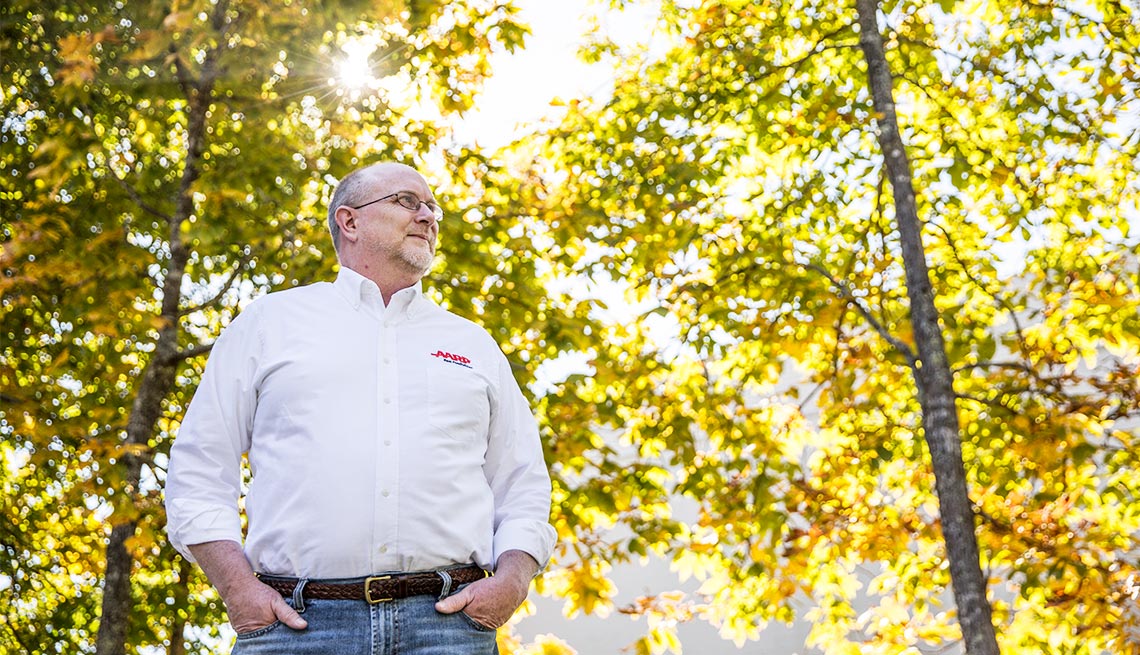AARP Hearing Center

By Hollie Deese
David Morrow, 59, knows how fortunate he is after serving 23 years in the U.S. Air Force investigating computer crime. He was qualified to move into the private sector fairly seamlessly in 1998 doing cyber security.
“I was lucky in that I knew what I wanted to do,” Morrow said. “I enjoyed catching bad guys and luckily was able to transition to the private sector, building on what I had been working on in the military. But that doesn’t always happen.”
Barry Rice, 70, was a carefree professional water-skier at Cypress Gardens in Florida when he was drafted at 19 during the Vietnam War. But after he was severely wounded, his transition back into civilian life wasn’t quite so smooth.
“When we came home it was very ugly. We were rejected, even by our families,” he said. “They expected us to be the same young men we were before we went over. And that wasn’t the case.”
AARP is ramping up its involvement on issues affecting veterans of all generations, helping them in the transitions they face in civilian life. Tennessee is home to more than 500,000 vets, and Morrow and Rice want to make it easier for them to find the appropriate state services and other resources.
Morrow, who will lead the new AARP Veterans Council in Tennessee, said many smaller projects and nonprofits for veterans often need a boost in reaching the people they want to help. “We’re trying to listen and learn, and identify where our strengths and abilities as a national organization might be able to add something to the conversation,” Morrow said.
Coping with changes
AARP’s Life Reimagined program, geared toward older people who face turning points in their lives, can be recalibrated for veterans of all ages who face many adjustments when they leave active duty.
“We will have the opportunity to help people move through the process of leaving the military, because it is a process,” Morrow said, and that takes time for many vets.
Rebecca Townsend, a psychologist and counselor in Clarksville near Fort Campbell, is working closely with AARP on outreach in that community, which has the second highest population of veterans in the country after Fort Hood, Tex.
In the military, “there is not a lot of room for creativity for completing a mission,” she said, so the Life Reimagined program offers veterans “a new way of thinking for them. This gives them an opportunity to start to dream again.”
Rice, who is president of the Tennessee State Council for Vietnam Veterans of America, works with Townsend on suicide prevention and other issues. He said there are approximately 180,000 Vietnam-era veterans in the state.
At Austin Peay State University in Clarksville, AARP is working with VetSuccess on Campus (VSOC), a program that offers career counseling, mentoring and tutoring, employment assistance and guidance on VA benefits. AARP and VSOC are presenting an art show this month of works by Austin Peay faculty and students who have served, and by members of their families.
“The VSOC program wanted to do something that was inclusive of the veterans as well as their family members, which is an important angle for AARP,” said Tara Shaver, AARP outreach director for Middle Tennessee.
Helping veterans find resources is personal for Stacy Pennington, AARP outreach director for East Tennessee. Her brother, Army Staff Sgt. Steven Ochs, served three tours in Iraq before he died at 32 from a form of leukemia linked to toxins from burn pits used there.
“We are really trying to be that trusted resource and gain some respect with Life Reimagined, caregiving and Fraud Watch,” Pennington said. AARP also helps support Veterans on a Mission, a program partnering recent veterans with older vets and members of the community.
To learn more about Life Reimagined, caregiving resources, the AARP Veterans Council and how active-duty military and veterans can get 20 percent off an AARP membership, go to aarp.org/veterans, email tn@aarp.org or call 866-295-7274 toll-free.
Hollie Deese is a writer living in Gallatin, TN.































































